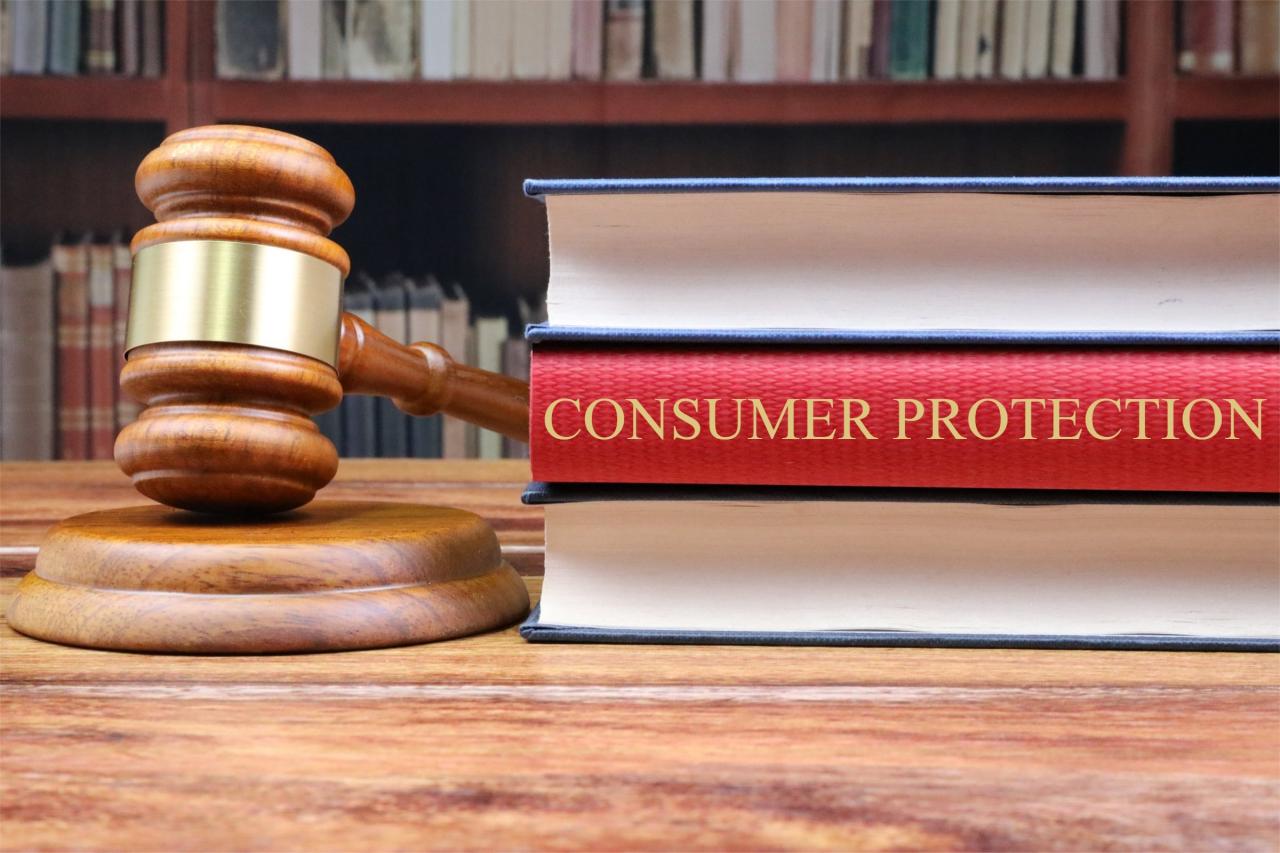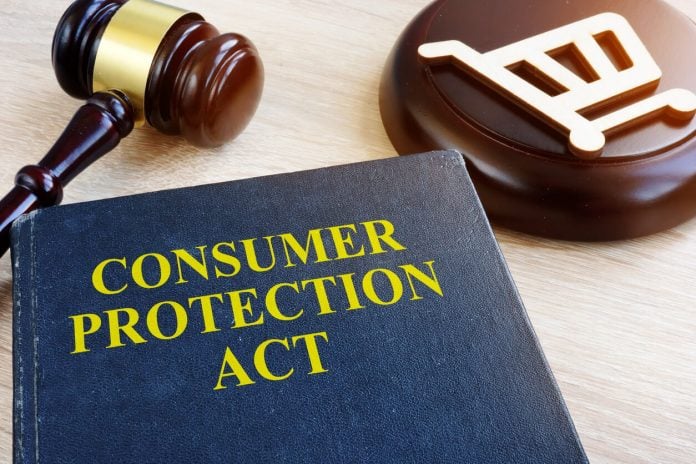The digital marketplace has revolutionized how we shop, offering unparalleled convenience, choice, and access to goods and services from around the globe. However, this rapid shift to online commerce has also created a new and complex frontier for consumer protection. Consumer Protection in E-commerce is a critical field that is actively shaping the legal and regulatory landscape of the digital economy. This article will provide a comprehensive guide to the key legal principles, challenges, and regulations that govern online transactions. We will explore how traditional consumer protection laws are being reinterpreted for the digital age, delve into the new challenges of data privacy, online fraud, and deceptive marketing, and offer a strategic roadmap for businesses and individuals to navigate this intricate environment.
The Legal Foundation of E-commerce

The laws that protect consumers in the physical world are, for the most part, also applicable in the digital realm. However, the unique nature of e-commerce—its speed, global reach, and reliance on technology—requires a reinterpretation and, in some cases, a new set of regulations.
A. Contract Law and Online Transactions: Every online purchase is a legal contract. The moment a consumer clicks “buy,” they are entering into a legally binding agreement with the seller.
- Terms and Conditions: A website’s Terms and Conditions (T&Cs) are a critical part of this contract. They outline the rights and responsibilities of both the buyer and the seller, including everything from the return policy to the use of personal data. The legal question is whether a consumer who clicks “I agree” has truly consented to these terms, especially when they are long and complex.
- The “Clickwrap” Agreement: Most online T&Cs are what is known as a “clickwrap” agreement, where the user must click a box to indicate their acceptance. Courts have generally found these agreements to be legally binding, as long as the terms are reasonably accessible and the user has a clear opportunity to review them.
B. The Uniform Commercial Code (UCC): The UCC is a body of law in the U.S. that governs commercial transactions. It has been adapted for the digital age to cover online sales.
- Warranties: The UCC provides for both express and implied warranties. An express warranty is a clear, written statement from the seller about a product’s quality or performance. An implied warranty is an unwritten, unstated guarantee that a product will function as it is supposed to. These protections are just as important in the digital world as they are in the physical one.
C. Consumer Protection Statutes: A number of key consumer protection statutes are being applied to e-commerce.
- The Federal Trade Commission (FTC): The FTC is the primary federal agency responsible for consumer protection in the U.S. It has broad authority to investigate and prosecute companies that engage in deceptive or unfair business practices, including those that operate online. The FTC’s enforcement actions have been crucial in shaping the legal landscape of e-commerce.
- The Consumer Financial Protection Bureau (CFPB): The CFPB has a key role in protecting consumers in financial transactions, including those that occur online. It has jurisdiction over credit cards, loans, and other financial products that are sold in the e-commerce space.
- State Laws: Many states have their own consumer protection statutes, such as California’s Consumer Legal Remedies Act (CLRA), which provide additional protections for online consumers.
The New Frontiers of Consumer Protection in E-commerce
The digital nature of e-commerce has introduced a new set of legal challenges that are not addressed by traditional laws. These new frontiers are where the legal system is currently focused.
A. Data Privacy and Security: The collection and use of personal data is at the heart of e-commerce, but it also presents a significant legal risk.
- GDPR and CCPA: Regulations like the EU’s GDPR and California’s CCPA have set a high bar for data privacy. They require companies to be transparent about how they collect and use personal data, to obtain user consent, and to provide individuals with the right to access and delete their data. A failure to comply can result in massive fines.
- Cybersecurity Breaches: When a company’s data is breached, it can face significant legal liability, including class-action lawsuits from affected individuals, regulatory fines, and breach of contract claims from business partners. Companies are being held to a new standard of care for protecting sensitive consumer data.
B. Online Fraud and Deceptive Practices: The anonymity of the internet has made it a breeding ground for fraud and deceptive marketing.
- Phishing and Scams: Consumers are often the victims of phishing schemes and online scams. The legal fight is over how to hold the platforms that host these scams accountable, and what legal recourse a consumer has when they are a victim.
- Deceptive Marketing: The FTC is actively prosecuting companies that engage in deceptive marketing, such as using fake reviews, making false claims about a product’s quality, or using “dark patterns” to trick a consumer into making a purchase. A “dark pattern” is a user interface that is designed to deceive or manipulate a user into doing something they otherwise wouldn’t do.
C. The Rise of Digital Assets and Currencies: The use of cryptocurrencies, NFTs, and other digital assets in e-commerce is creating a new set of legal questions.
- Consumer Protection for Digital Assets: Who is responsible when a consumer’s cryptocurrency is stolen? What legal protections does a consumer have when they buy an NFT that is later found to be fraudulent? The legal system is still grappling with how to apply traditional consumer protection laws to these new types of assets.
- Unregulated Market: The unregulated nature of many crypto markets makes it a high-risk environment for consumers. The legal push is for a clear regulatory framework that provides a level of protection for consumers who are buying and selling digital assets.
D. The Role of Platforms and Marketplaces: The legal liability of e-commerce platforms and online marketplaces is a major point of legal contention.
- “Platform” vs. “Seller”: The legal debate is whether a platform, like Amazon or eBay, is simply a neutral “platform” that hosts other sellers or if it should be held responsible as a “seller” when a product sold on its site is defective or fraudulent. The legal trend is towards a greater degree of platform liability, especially when the platform plays a key role in the transaction, such as with payment processing or logistics.
Strategic Roadmap for Businesses and Individuals

Navigating the complex world of consumer protection in e-commerce requires a proactive and strategic approach. Here is a roadmap for how businesses and individuals can manage their risk and thrive in the digital marketplace.
A. For Businesses:
- Prioritize Privacy and Security: The best defense against legal and reputational risk is to prioritize privacy and security. This includes:
- Clear Privacy Policy: Have a clear, easy-to-understand privacy policy that is in compliance with all relevant regulations.
- Data Minimization: Only collect the data you absolutely need. The less data you have, the less risk you have.
- Robust Cybersecurity: Invest in robust cybersecurity systems to protect customer data from breaches.
- Be Honest and Transparent: The FTC’s message to businesses is clear: be honest and transparent in your marketing. This includes:
- Accurate Descriptions: Provide accurate and detailed descriptions of your products.
- No Fake Reviews: Do not use fake reviews or testimonials.
- Clear Pricing: Be transparent about your pricing, including any shipping or handling fees.
- Create a Clear Terms and Conditions: A clear, well-written Terms and Conditions page is the foundation of a successful e-commerce business. It should cover:
- Return Policy: A clear and fair return policy.
- Dispute Resolution: A clear process for handling customer disputes.
- Warranties: A clear statement of any warranties, both express and implied.
B. For Individuals:
- Read the Fine Print: Before you click “buy” or “I agree,” take the time to read the website’s privacy policy and T&Cs. Look for things like the return policy, the shipping fees, and how your personal data will be used.
- Use Secure Payment Methods: Always use a secure payment method, such as a credit card or a trusted payment service like PayPal. Avoid paying with a debit card or a wire transfer, as these methods offer less protection in the event of fraud.
- Be Wary of Scams: Be wary of emails or texts that ask for your personal information, especially if they are from a company you don’t recognize. Do not click on suspicious links or download attachments from unknown senders.
- Know Your Rights: Know your rights as a consumer, including your right to a refund for a defective product and your right to file a complaint with the FTC or a state consumer protection agency.
C. The Role of Technology: Technology can be a powerful tool for consumer protection.
- AI and Machine Learning: AI can be used to detect and prevent online fraud, identify fake reviews, and flag deceptive marketing.
- Secure Browsers: Web browsers and security software can help to protect consumers from phishing schemes and malicious websites.
- Blockchain and Transparency: Blockchain technology is being explored as a way to create a more transparent and secure supply chain, allowing a consumer to verify a product’s authenticity from its origin to their doorstep.
D. The Push for Global Standards: The global nature of e-commerce makes international collaboration a necessity.
- International Agreements: The future of e-commerce will involve more international agreements and treaties that set a global standard for consumer protection, making it easier for businesses to comply and for consumers to shop safely from around the world.
Conclusion
Consumer Protection in E-commerce is not a static set of rules; it is a dynamic and evolving field that is fundamentally shaping the digital marketplace. It is a story of old laws being applied to new technologies, and a fundamental debate about the balance between innovation, corporate responsibility, and consumer safety. The era of a hands-off approach to e-commerce is over. The new push in consumer protection is a clear signal that a new social contract is being forged for the digital age, one that demands more transparency, more accountability, and a deeper commitment to protecting the rights and interests of consumers. The future of e-commerce will be defined not just by the convenience it offers but by the trust it builds, and in an age of constant digital threats, that trust is our most valuable asset.









